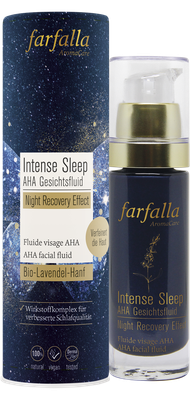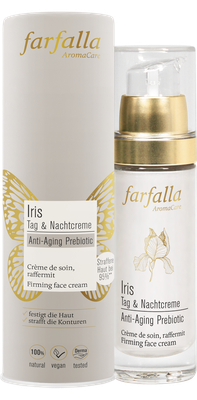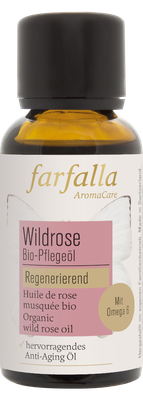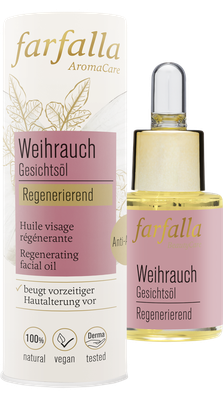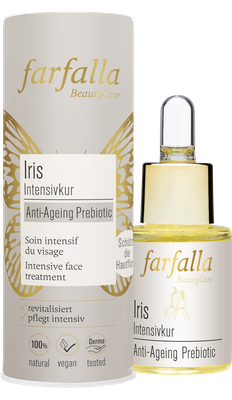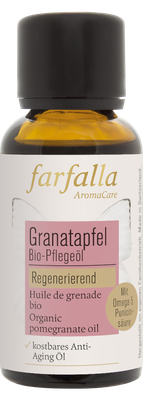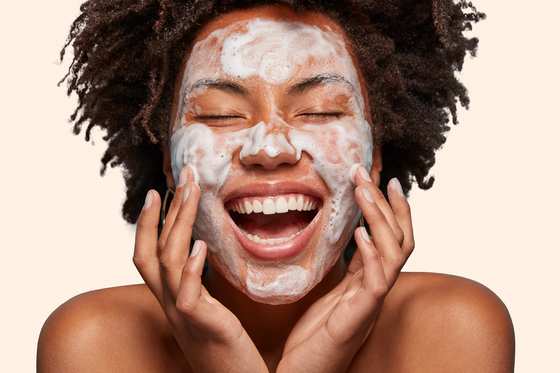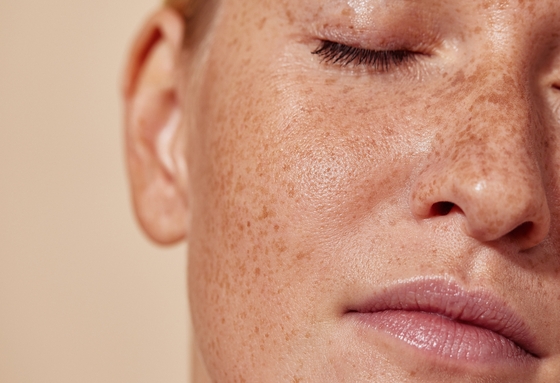Skin types and conditions - do you know your type?
The skin, our largest organ, is a fascinating structure of cells, tissues and microorganisms. Our skin type, which is genetically determined and can be determined from puberty, remains the same throughout our lives. However, while skin type cannot be changed, we can influence the condition of our skin - with the right skincare as well as our lifestyle.
Your skin is clear and without problems?
Skin type: Normal skin (Eudermie)
The desirable ideal condition of the skin. It is small-pored, well supplied with blood, with a rosy skin colour and even surface transparency. Neither too oily nor too dry, normal skin does not cause any problems. People with normal skin report unproblematic skin that does not feel tight after cleansing and does not react excessively to skin care products. However, this skin condition can be significantly disturbed by various factors.
Care tips for normal skin:
moisturise the skin
add oil as necessary with age
Use gels, emulsions, light creams
If lovingly cleansed and cared for, it is undemanding
Caring treatment for normal skin

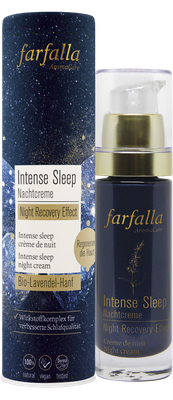
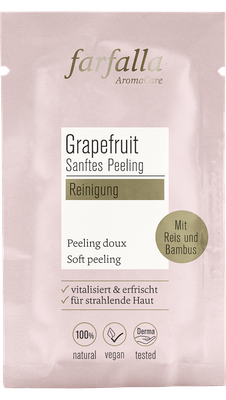
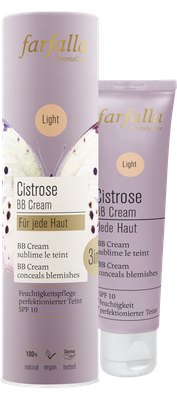
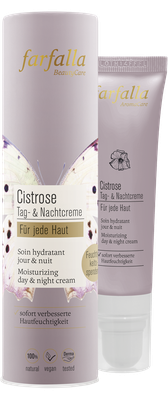
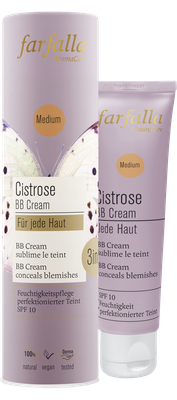


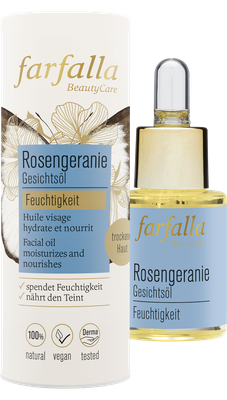
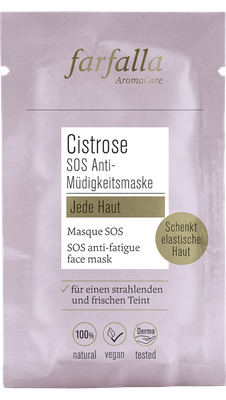

Is your skin tight after cleansing? You probably have dry skin.
Skin type: Dry skin (sebostasis)
Skin of this type is characterised by small pores and a tendency to flaky patches, which are often accompanied by itching and an unpleasant feeling of tightness. A characteristic feature is the absence of the physiological lipid film on the skin, which leads to a reduced water-binding capacity. The overall appearance of the skin appears rough and blotchy, and in some cases premature ageing can be noticed. This condition can be exacerbated by various factors, including stress, excessive coffee consumption, smoking, exposure to sun and wind, cold and hormonal imbalances.
The outward appearance of dry skin includes:
Low sebum production, resulting in small pores.
Early wrinkling.
Tightness due to lack of moisture and oil.
An undeveloped hydrolipid mantle.
Reduced water-binding capacity due to the lack of a lipid film, which leads to a persistent feeling of tightness.
Flaky and cracked skin.
Hardly any blemishes.
(Early) fine wrinkles.
The care of dry skin requires special attention and the use of products that provide the skin with sufficient moisture and nourishing oils to relieve the feeling of tightness and keep the skin supple and healthy.
Care recommendations for dry skin:
- Intensive moisturising and oil supply
- Use of tonic, mild cleansing fluids, eye care, serums and masks
Nourishing care for dry skin
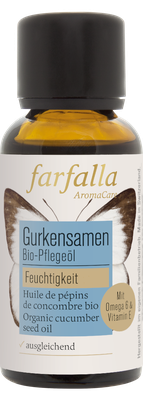

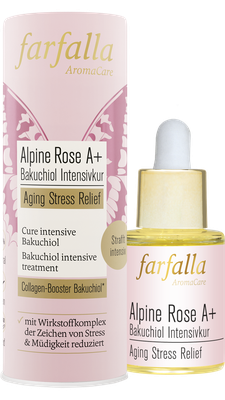
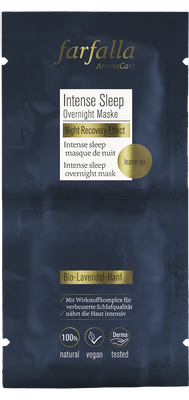
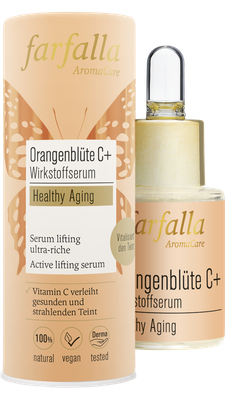





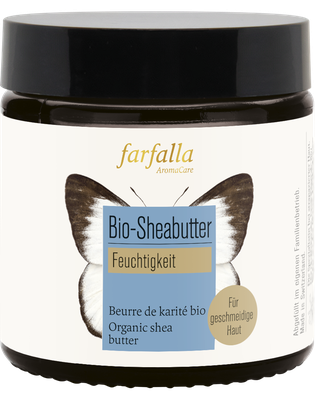
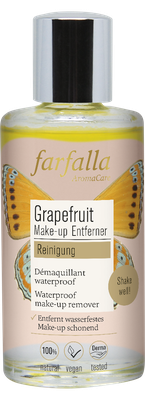

Has your skin always been rather large-pored and oily?
Skin type: Oily skin (seborrhoea)
Oily skin is characterised by coarse pores, an oily sheen, blemishes such as blackheads, pustules and papules. Sebum production is increased and the skin appears uneven and rather yellowish in colour. Poor diet, metabolic disorders, hormonal imbalances and psychological stress can exacerbate these irregularities. The complexion improves physiologically with increasing age.
Care recommendations for oily skin:
Cleansing with cleansing foam or gel
Use of tonic or plant hydrolate with astringent active ingredients
Care with gels, fluids and light emulsions
Continue reading below at Skin condition: impure skin!
Does your skin have both blemished as well as dry/normal areas?
Skin type: Combination skin
This skin type is characterised by an oily T-zone (forehead, chin, nose) and a normal to dry cheek area. Skin care should be tailored to the needs of both skin regions.
Care recommendations for combination skin:
Basic and additional care for normal skin
Separate care for the T-zone and cheek area if required The right skincare for your skin type and condition is crucial for a healthy and radiant complexion. Individual needs should be the focus in order to optimally support the skin and provide long-term care.
Multi-talents - balancing care for impure and dry skin needs
What is the skin condition in contrast to the skin type?
Your skin condition refers to the current state of your skin, which is influenced by various factors. Skin conditions can vary and include concerns such as acne, redness, dehydration and signs of ageing, among many others. Skin types, on the other hand, describe the natural condition of the skin, which is often genetically determined and changes only minimally over the course of a person's life.
Internal and external factors that influence the condition of the skin:
Psychological and stress-related triggers
Hormones (e.g. puberty acne or the age-related atrophy of the skin that begins during the menopause due to hormonal changes)
Diseases of the endocrine glands (e.g. the adrenal cortex)
Diabetes (extremely dry skin)
Exogenous factors (e.g. environmental factors, air temperature and humidity, UV exposure, tobacco consumption, stimulants such as alcohol)
Incorrect skin care (not suitable for the skin type)
Nutrition
Perhaps you come into contact with a wide variety of substances at work that affect your skin? Various washing-active substances (surfactants) such as sodium lauryl sulphate can also attack your skin and lead to disorders of the skin barrier of the epidermal layer. This can result in the skin drying out and even developing eczema. Prolonged cold reduces the secretion of sebaceous glands and leads to dehydration of the skin.
In air-conditioned rooms, the sweat glands produce more sweat, which evaporates quickly due to the heat or dry air.
The skin dries out.
The skin's own protective mechanisms are still able to counteract these stimuli to a certain extent if the exogenous factors listed are only temporary. However, if the irritation lasts longer, the skin's own defence mechanisms are overtaxed. Your skin loses its normal, healthy texture, reacts sensitively and is prone to diseases.
Red spots, itching, burning, a feeling of tightness or allergic reactions are nothing new to you?
Skin condition: sensitive / neurodermatitis, dermatitis, psoarisis, rosacea, eczema
Perhaps you have already tried out a lot of products, but have not been able to tolerate many skincare products? Your skin condition is characterised by excessive skin reactivity. Such skin is usually also dry (sebostasis). The causes of a sensitive skin condition can be manifold. Firstly, predisposition plays a major role, but incorrect treatment of the skin, such as excessive cleansing or the wrong products, can also lead to hypersensitive skin. Even excessive nervous strain or the use of medication can be the cause. The same applies to strong alternating thermal stress or excessive blood flow.
Dry, reddened skin or skin blemishes are visible to the outside world. Itching, burning and a feeling of tightness may not be visible, but they are still very taxing for those affected. You are restless and overstimulated and no longer feel comfortable in your skin. Even the smallest changes can cause major irritation.
Appearance
Dryness (due to reduced sebum production, altered epidermal layer lipids or reduced water-binding capacity)
Translucent blood vessels (telangiectasia, couperose, rosacea)
Atopic skin disposition
Tightness, burning, redness after using certain products
Sensitivity to external stimuli (chemical, physical and mechanical stimuli)
Irritation to internal influences (e.g. stress)
Natural cosmetic care products are particularly predestined for sensitive skin due to the high tendency to allergies and reactions to synthetic ingredients in conventional cosmetics.
Care recommendations for sensitive skin
Gentle,mild cleansing, plant waters
Products with a moderate number of active ingredients
Soothing, moisturising and lipid-replenishing skin care
Use of sun protection products
Soothing care for sensitive skin

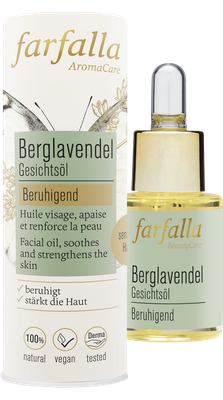


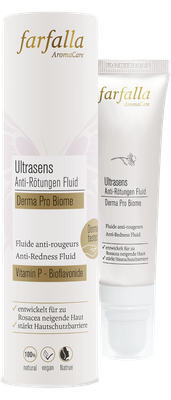
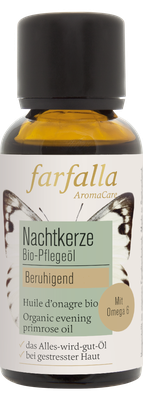
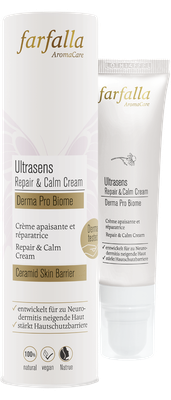



Do you have to deal with recurring or persistent skin impurities?
Skin condition: impure
Impure skin is a common consequence of oily skin. Excessive sebum production and a simultaneous cornification disorder on the surface of the skin lead to blemished skin or acne. Small cornified plugs form and cause a build-up of sebum. This results in the formation of comedones, commonly known as blackheads. The face, back, décolleté and shoulders can be affected. This is exacerbated by testosterone and adrenal cortex hormones (stress hormone), metabolic disorders, poor diet, psychological and environmental stress or an imbalance in the skin's microbiome.
Care recommendations for blemished skin
Thorough, mild cleansing - double cleansing if necessary
Toner or organic plant water with astringent, clarifying properties
Care with light fluids and gels
Clarifying masks instead of peelings
Clarifying care for blemished skin
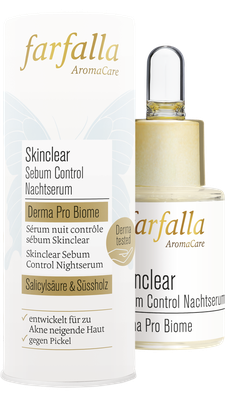
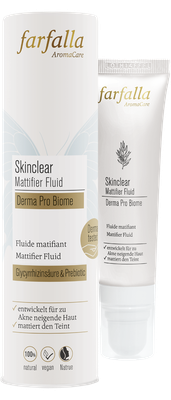


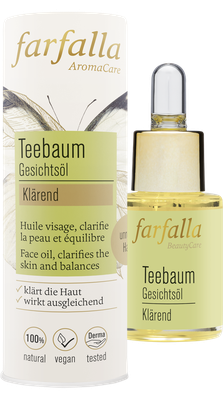




Is your skin looking increasingly tired, sagging and more wrinkled?
Skin condition: mature skin
In contrast to premature skin ageing, which is determined by exogenous factors, biological, endogenous ageing of the skin is genetically determined (regression of the skin with age).
Atrophic skin is characterised by the following features:
Reduced cell regeneration capacity and renewal
Diminished secretion of sebum and sweat glands
Hardening of the connective tissue with reduced ability to bind water
Degeneration of the elastic fibres
The epidermis becomes thinner, the function of the cells decreases and the corneal layer increases in thickness (poor absorption capacity of active ingredients)
Appearance
Wrinkles
Flaky skin
Hairiness increases
Pigment abnormalities (age spots)
Care recommendations for mature skin
Active ingredient-rich care and peelings! In order for active ingredients to penetrate better, the cornified layer must be removed regularly.
Regenerative care for mature skin
